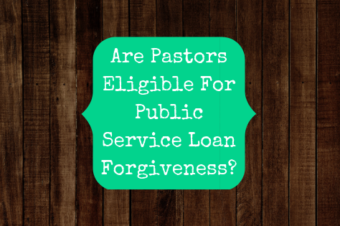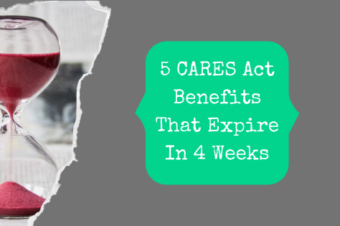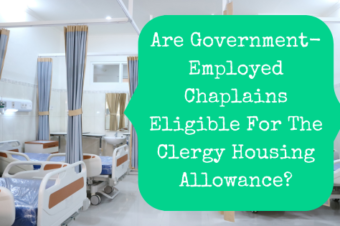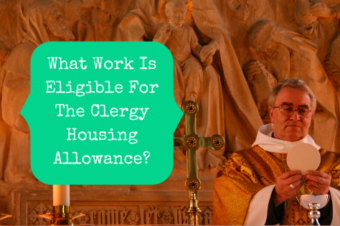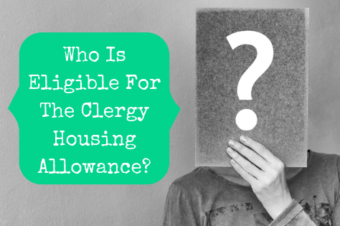A student loan is a student loan, right? Well, not really. There are a lot of different kinds of student loans; subsidized, unsubsidized, undergraduate, graduate, federal, private, parent, etc.
Each type of loan has unique features, both advantages and disadvantages, so it’s important to understand the differences. Many seminary students take out loans not realizing that they are any different than their undergraduate loans. That can be a costly mistake. So, today we are going to discuss the difference between graduate (what you use for seminary) and undergraduate student loans.
The Government Treats You Like An Adult
When you filled out the FAFSA to apply for government aid for your undergraduate degree, you had to include all of your parents’ financial information. Even if you’re living on your own and supporting yourself, the government sees everyone below a certain age as a dependent.
Now that you’re old enough to go to seminary, the government is ready to treat you as an adult. You don’t have to include your parents’ information when you fill out the FAFSA for graduate school. One advantage of this is that it makes it quicker and easier to apply.
There Isn’t Need-Based Aid
You may think that not including your parents’ information on the FAFSA will improve your chances of getting need-based financial aid. Unfortunately, there isn’t much of that available for graduate students.
Pell grants, which are gifts that do not have to be paid back, are not usually available for graduate students the way they are for undergraduates. So, even if the government helped you pay for your undergraduate degree, don’t expect the same help this time around.
Seminary Loans Have Higher Interest Rates
I was just listening to a podcast for financial advisors about student loans. One of the student loan specialists (yes, they do exist) said something that, frankly, shocked me. She said that grad plus loans are a cash cow for the US government. Cash cow is a business term for something that earns you a lot of money with very little effort.
I always thought the government was in the student loan business to help people get an education. Apparently, though, they make a lot of money off of it. The student loan experts were saying that graduate loans have much higher rates so that they can subsidize the undergraduate loans.
For this school year that we’re about to wrap up, the rate for undergraduate federal loans was 5.05% while the rate for Direct PLUS loans for graduates was 7.6%. If you borrow $10,000 and pay it back over a 10-year schedule, that is a difference of $1,550 dollars in interest. The graduate student pays over one and a half times as much interest as the undergraduate student.
Interest Starts Accruing Immediately
Not only do you pay more interest for your seminary loans than undergraduate loans, but the interest starts accruing immediately. If you had subsidized government loans for your undergraduate studies, then they didn’t start accruing interest until you graduated and started to pay them back.
That’s not the case for seminary loans. The government does not offer subsidized loans for graduate school. That means interest starts accruing the moment you take out the loans, no matter how long you stay in school. If you were to borrow $10,000 at the current PLUS loan rates, in 3 years when you finally have your MDiv your loan balance will have ballooned to $12,457. That’s almost 25% more than you originally borrowed.
Should You Take Out Loans For Seminary?
You see, there are some very important differences between student loans for graduate and undergraduate studies. Even though you can borrow more for seminary, it will also cost you more.
If you’ve already gone through seminary and are struggling to pay off your loans, I hope this helps you understand why your balances have grown larger than you expected. If you’re planning on starting seminary in the fall and considering taking out loans, I hope you consider this information very seriously.
No one blinks an eye at someone taking out $50,000 in student loans to go to medical school. The minute that person graduates they’ll be earning at least three times that amount, often even more.
The 2018 salary poll of the Southern Baptist Convention found that full-time senior pastors age 35 and below earn an average of less than $60,000. Full-time ministerial staff of the same age earns an average of less than $50,000. Those are averages, not minimums. Also, that is just the Southern Baptists. Your denomination may pay more or less.
It is important for you to consider how it will affect your life, family, and ministry before you take out seminary loans. Will you be able to follow your call to church planting or the mission field with debt hanging around your neck? Will you feel pressured to postpone having children so your wife can keep working longer to help pay down the balances? What happens if you can’t find a church that will pay you enough to meet your obligations?
Personally, I’m not a fan of debt. I would rather go to a cheaper school or go part-time so that I could pay as I go instead of taking out loans. However, this is your life and your decision. I only ask that you think through your options and consider the consequences of each, and I hope this information helps you do just that.


